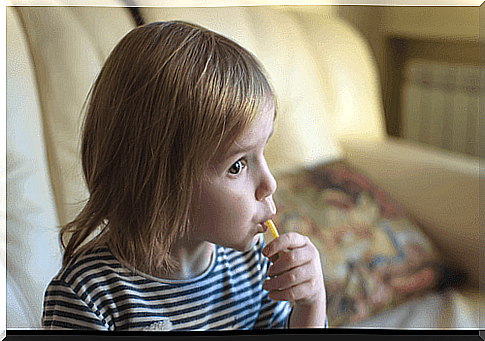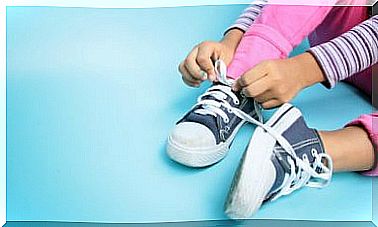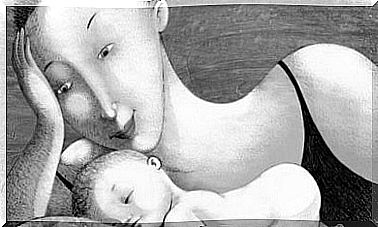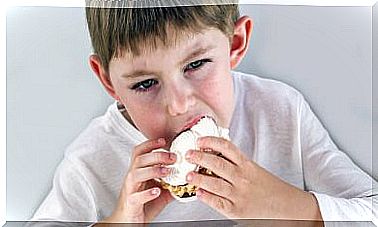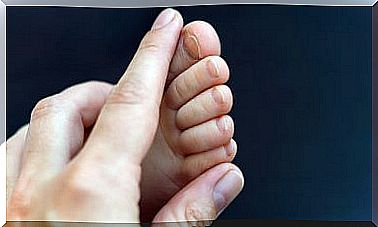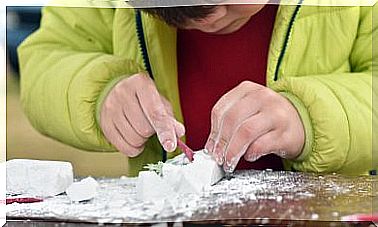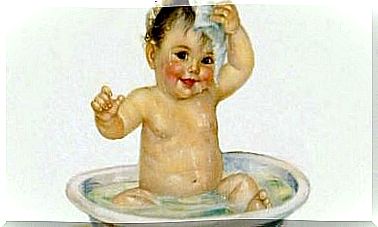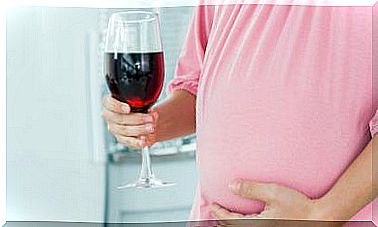Itches In Pregnancy: The Desire To Eat What Is Not Food
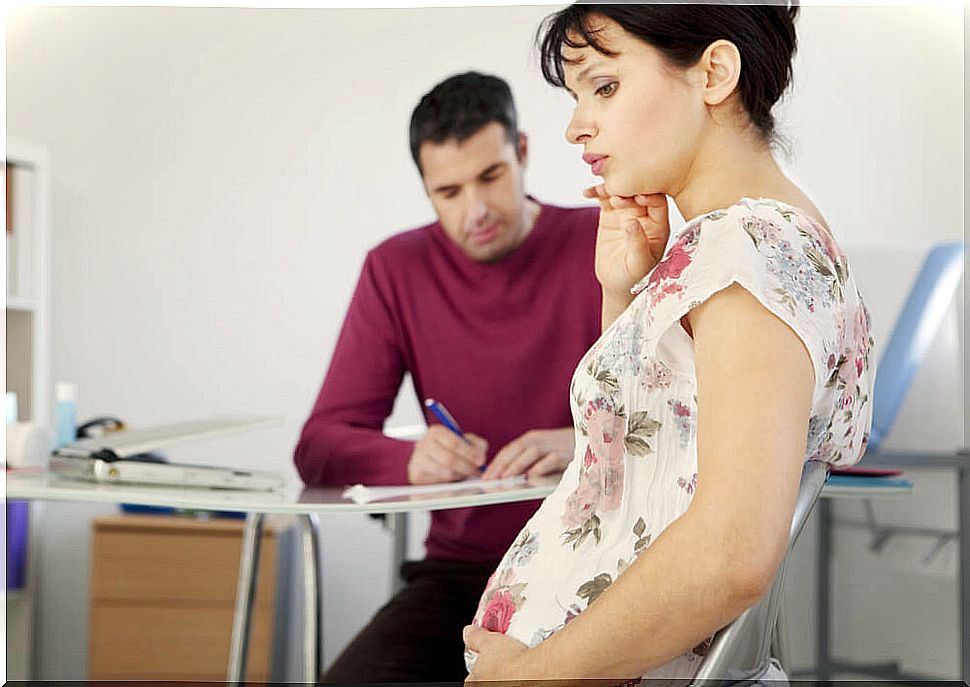
When we think of eating disorders, examples such as anorexia or bulimia come to mind. However, there are some lesser known conditions that affect the lives of those who suffer them equally. Today we will talk about pica in pregnancy, an eating disorder as common as it is unknown.
What is pica?
Pica is an eating disorder that consists of the irrepressible desire to ingest or lick non-nutritive substances. The most common are sand, plaster, soap, ice, or toothpaste.
According to DSM-V diagnostic criteria, pica consists of the intake of non-nutritive substances for at least one month, this behavior being inappropriate for the person’s level of development and not forming part of any social or cultural practice.
This disorder most commonly presents in childhood, between 1 and 6 years of age. Especially frequent in cases of children with children with autism, developmental disorders or malnutrition It is also quite common in pregnant women or even in times of stress or anxiety.
The pica in pregnancy
Although it is very common for women to have cravings during their pregnancy, they usually refer to common foods. The pica in pregnancy usually occurs during the first and second trimesters, so it may be related to the states of stress, anxiety or fears typical of these weeks.
Likewise, it is more common for this disorder to occur in pregnant women under 20 years of age who already suffered from pica in childhood. Normally, the disorder disappears after giving birth, although there are cases in which the behavior has continued after delivery.
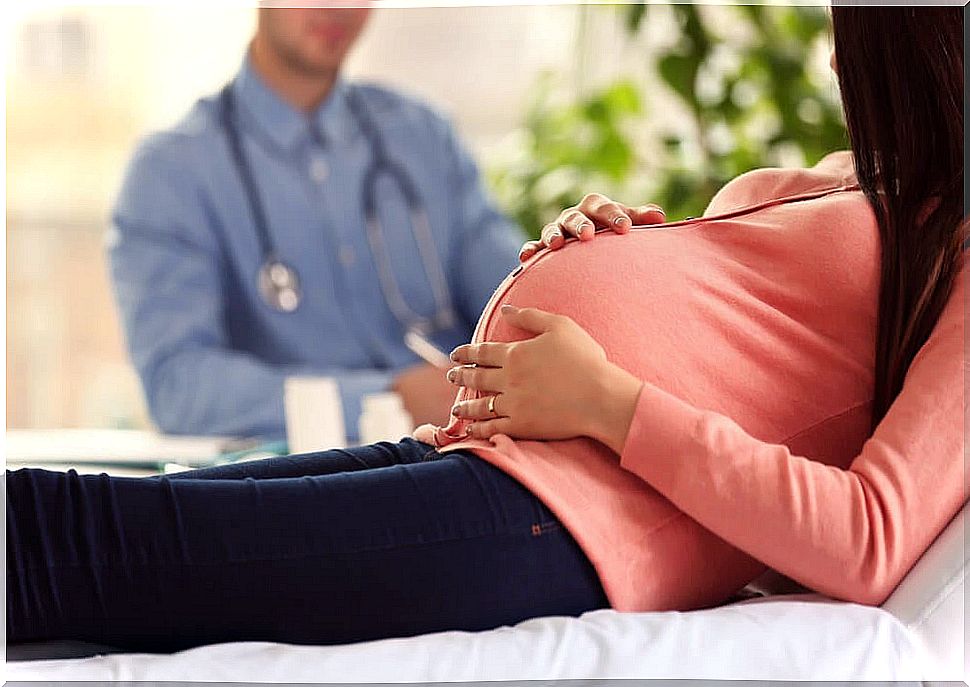
Causes of pica in pregnancy
Although there is no clearly identified cause with the origin of the pica, there are some hypotheses that shed some light on the subject. Sometimes these unusual cravings can be related to underlying physical or mental conditions.
On the one hand, it can be generated due to an internal state of anxiety or fear. On the other hand, there are studies that connect pica disorder in pregnancy with deficiency of iron and other vitamins and minerals.
According to these studies, women with a lack of iron tend to have a craving for ice; proper treatment for anemia can lessen this craving. There may also be a deficiency of calcium or zinc that the body tries to compensate by using these substances.
Consequences of pica in pregnancy
The intake of non-food substances is harmful for both you and your baby. Although eating ice probably won’t hurt you (although it may well cause dental injury), other substances can have more serious consequences.
Of the patients suffering from pica, 75% end up needing surgical intervention, 30% suffer complications of some kind and up to 11% die from direct or indirect causes of this disorder.
The most frequent complications are intestinal obstructions. Lead poisoning, infection or parasites can also occur, as well as an increased risk of premature delivery.
In addition, in most cases, the intake of these substances interferes with adequate absorption of nutrients from food, causing a deficiency of the same.
Prevention and treatment of pica
Something of special relevance regarding this disorder is to act as soon as possible, in order to prevent this behavior from becoming part of the person’s daily habits. It is essential to intervene as soon as possible because, once the behavior is established, it will be more difficult to make it disappear.
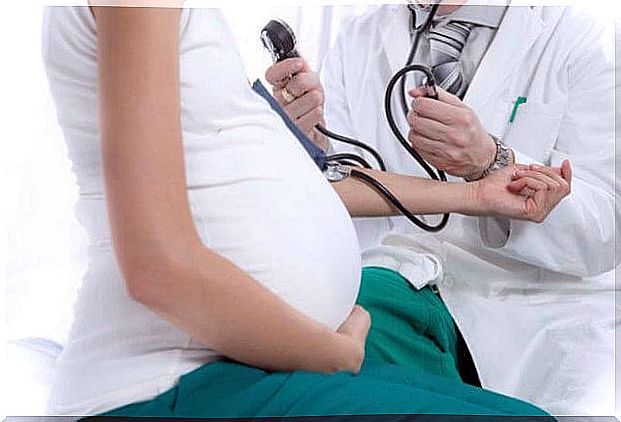
The doctor must be informed so that he can perform the necessary tests to determine the scope of said intake. It will be necessary to monitor the state of iron, as well as the rest of vitamins and minerals to assess the need for supplementation.
The prescription of drugs such as serotonin reuptake inhibitors may also be appropriate . These can control stress or depression if they were at the root of the disorder.
Finally, it is vitally important to go to a psychologist for therapy. It is preferable that it is cognitive-behavioral, as it will help us manage the impulse and compulsive eating behavior.
